Brigadier General Lachlan Chisholm Wilson Papers Digitised @ SLQ
By JOL Admin | 22 August 2016
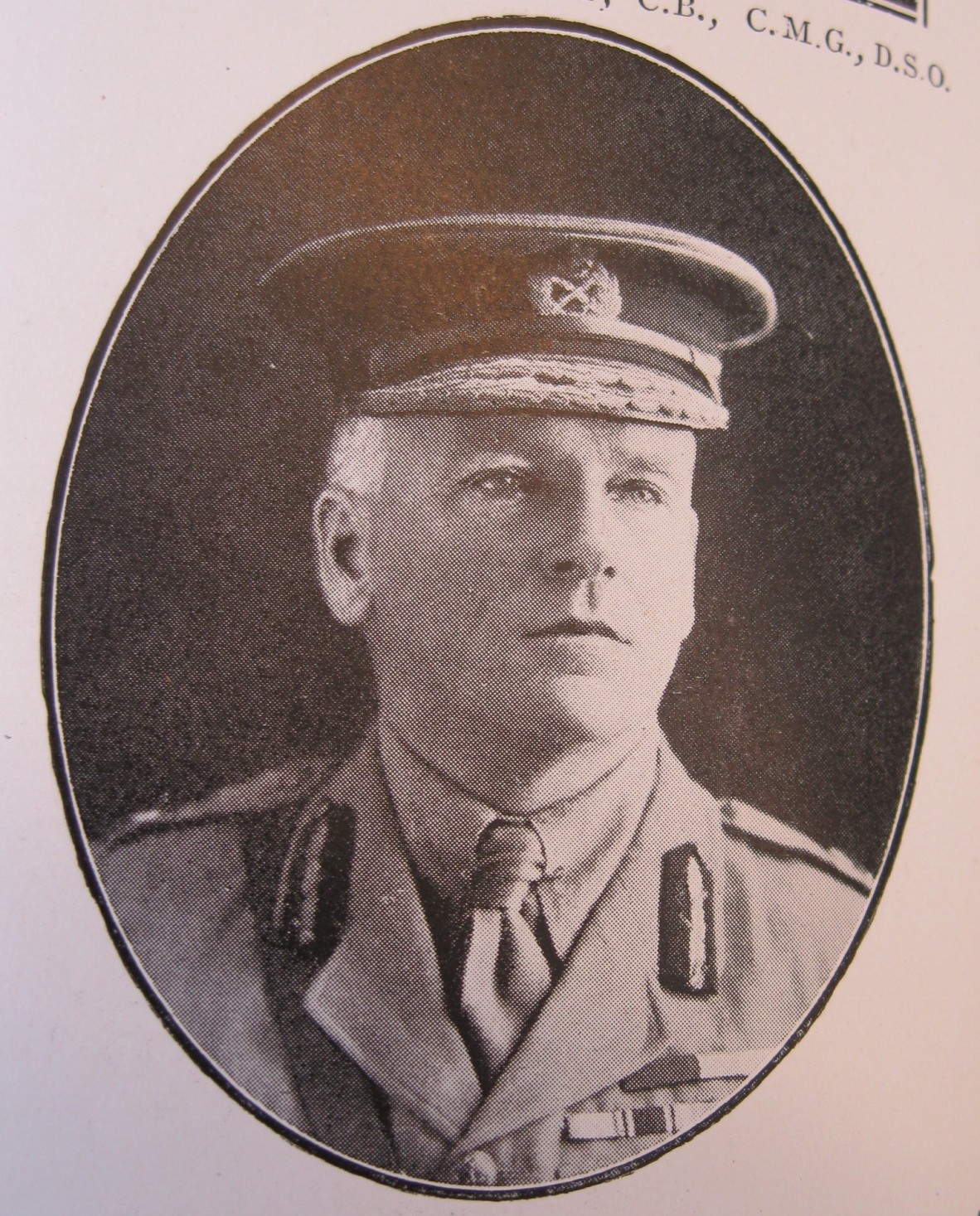
Brigadier General L.C. Wilson. Source: "Annals of the Brisbane Grammar School 1869-1922, Compiled by Stuart Stephenson, Brisbane: Government Printer, 1923. Plate XLV.
The World War I papers of Brigadier General Lachlan Chisholm Wilson have recently been digitised by the State Library and are now available through our catalogue. The material includes a scrapbook and a typewritten narrative of the activities of the 5th Light Horse Regiment.
Lachlan Chisholm Wilson, one of Queensland's most distinguished soldiers, was born in 1871 at Waterford on the Logan River, south of Brisbane, Queensland. His father, Charles Wilson, was a farmer and established a sugar mill at Gramzow, known as the Logan Sugar Factory. After the mill ran into financial difficulty he eventually moved with his young family to Brisbane, where Lachlan spent his formative years. Lachlan, along with his older brother, Colin, won a scholarship to the Brisbane Grammar School where both boys excelled academically. After being admitted to the Queensland Bar in 1895, Lachlan worked as a solicitor in Townsville, before serving in the South African War as a corporal with the 2nd Queensland Mounted Infantry Contingent.
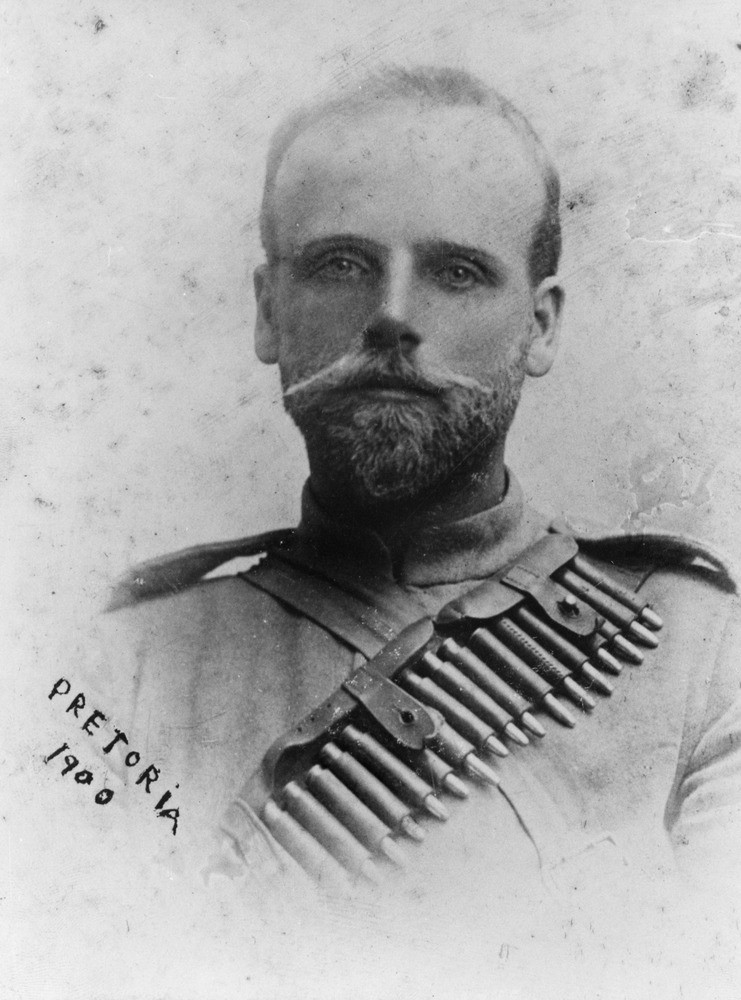
Lachlan Chisholm Wilson in his Boer War uniform, Pretoria, 1900. Source: John Oxley Library, Accession No. 7725.
In 1914 L.C. Wilson left Brisbane as a major in the 7th Light Horse Brigade. After being promoted to second-in-command of the 5th Light Horse he landed on Gallipoli in May 1915. He took charge of the 5th Light Horse on the 1st August, after its commanding officer, Lieutenant Colonel Hubert Jennings Imrie Harris, was killed. On 23 August Wilson led his men on a successful raid against Bird Trenches near Gaba Tepe and in November repulsed a Turkish attack and captured positions known thereafter as "Wilson's Lookout".
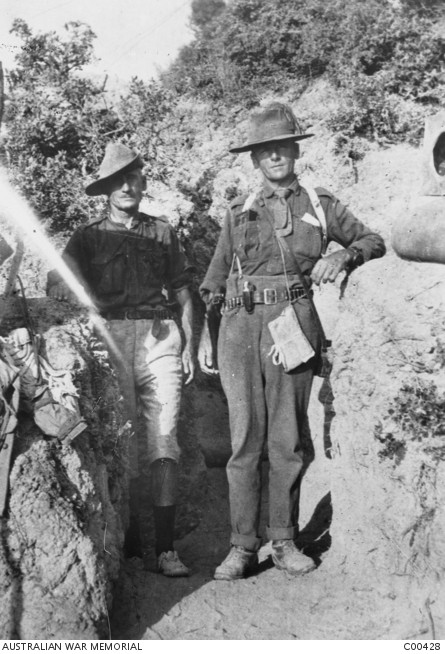
Lachlan Chisholm Wilson (right) and Major Stephen Midgley at Gallipoli, Turkey, August 1915. Source: Australian War Memorial, Image ID C00428.
Later in the Middle East he served in almost all of the major engagements, from the battle of Romani in August 1916, to the capture of Damascus in October 1918. Wilson led the first Christian troops ever to enter Damascus under arms. In 1917 he was promoted to brigadier-general and was given command of the 3rd Light Horse Brigade.
His military service continued during World War II as he served in the V.D.C. (Volunteer Defence Corps) and was at one period commander of the corps in Queensland. he died in 1947 and was buried at Toowong Cemetery in Brisbane. At the cemetery the Last Post was played by a bugler who had served with Chisholm during the South African War.
The scrapbook (OM 74-16) contains newspaper cuttings, letters, documents, memoranda, extracts from official war histories, programmes, invitations and other papers. The material relates mainly to Wilson's service with the 3rd and 5th Australian Light Horse Brigades and their campaigns in Gallipoli, Palestine, and the Sinai.
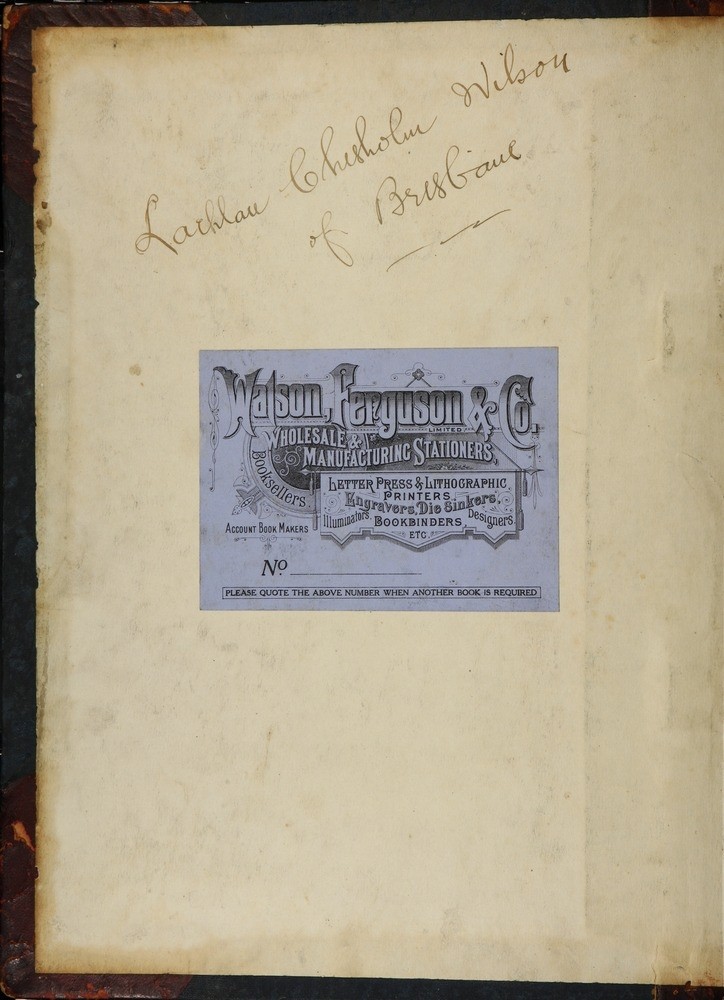
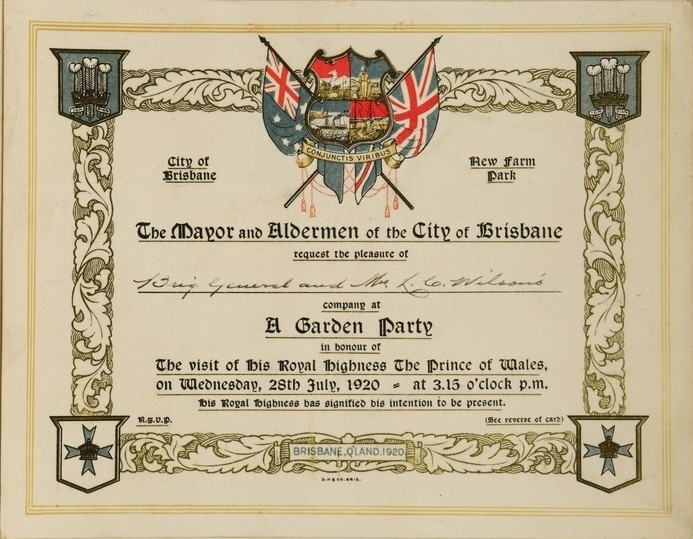
L.C. Wilson Scrapbook, OM 74-16.
The narrative (OM 75-92) was jointly written, by L.C. Wilson and Lieutenant-Colonel D.C. Cameron, and is a record of the activities of the 5th Light Horse Brigade during World War I. Appended to it is a nominal roll of the officers of the brigade and a listing of decorations awarded to the members of the regiment.

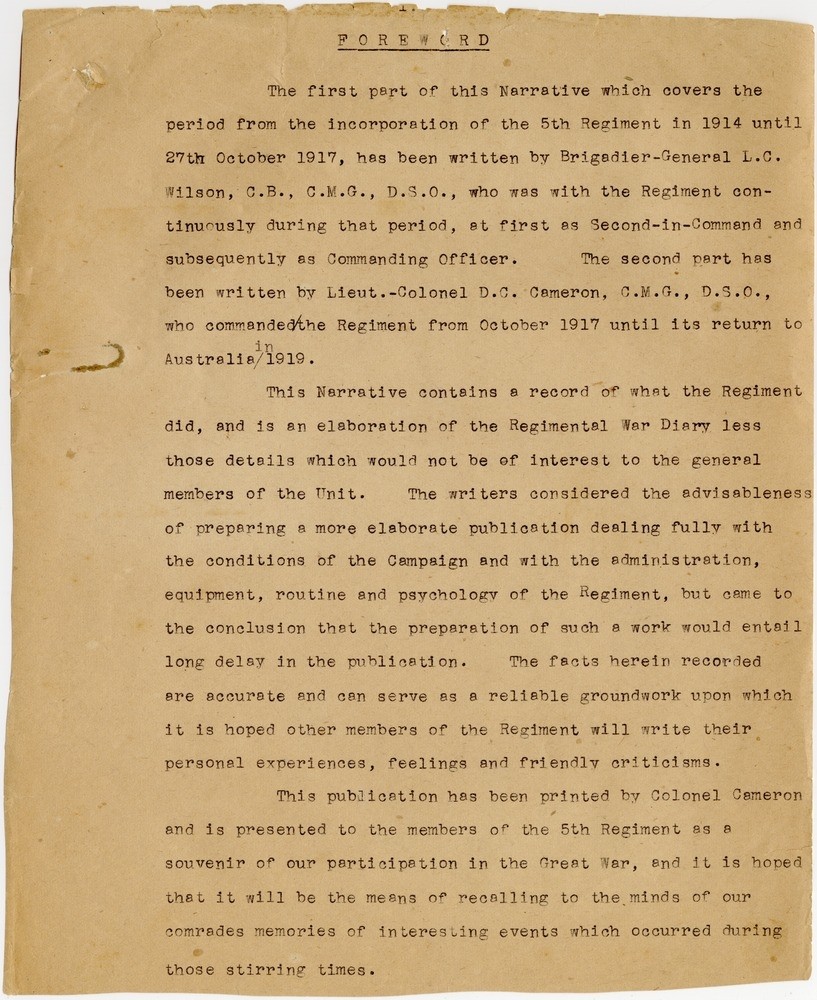
Lachlan Chisholm Wilson Papers, OM75-92.
An unassuming, conscientious, and quiet man, with natural leadership qualities and great personal bravery, Wilson is often described as a soldier who was loved and idolised by his men. A character study of Wilson which appeared in "Smith's Weekly" in 1929 reveals:
Service with Wilson was the nearest thing to three meals a day and a bed that battlefield conditions could afford. His care for his men and his understanding of them were boundless. Only his calm reserve kept him from growing into a legendary figure. He met crisis with the same imperturbable quiet as characterised his moments of ease.
In a similar vein an article published in the Sunday Pictorial, May 5, 1929, states:
Wilson was respected by all his men and idolised by the majority, because they said "the Colonel will never lead us into a death-trap. If the regiment ever does get smashed up it will be through no fault of his, anyway". The cool, calculating brain of the man was used not only when the regiment was in action. Throughout three strenuous campaigns it was ceaselessly active in striving for every comfort possible for the men and their true friend, the horse.
The Lachlan Chisholm Wilson Papers may be viewed at the John Oxley Library or online at:
OM 74-16, Lachlan Chisholm Wilson Scrapbook: http://onesearch.slq.qld.gov.au/SLQ:OM:slq_alma21148639260002061
OM 75-92, Lachlan Chisholm Wilson Papers 1914-1919:
http://onesearch.slq.qld.gov.au/SLQ:OM:slq_alma21148682030002061
More Information:
Brigadier General Lachlan Chisholm Wilson blog post
Australian Dictionary of Biography
Lynn Meyers, QANZAC100 Content Curator
Comments
Your email address will not be published.
We welcome relevant, respectful comments.